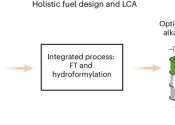An electric passenger light rail for Okanagan Valley, Canada
Anyone who has ever been stuck in gridlock while driving over Kelowna's William R. Bennett Bridge or any Okanagan community can appreciate the thought that there has to be a better alternative than Highway 97 to navigate ...
Jul 10, 2024
0
625



